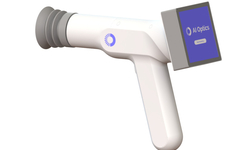



AI systems are being developed to recognize and respond to human emotions
Trend - Companies are integrating emotion recognition capabilities into their AI systems, allowing machines to detect and respond to human emotional states through facial expressions, voice patterns, and physiological signals. This technology is being implemented across various sectors, from healthcare diagnostics to customer service platforms.
Insight - The increasing digitization of daily interactions has created a desire among consumers for more humanized technological experiences. While automation offers efficiency, many individuals find purely algorithmic interactions unsatisfying and impersonal. This tension has created demand for AI systems that can recognize and respond to emotional nuances, particularly in sectors where empathy is crucial – from healthcare to customer service. For consumers, emotionally intelligent AI represents a bridge between convenience and human connection.
Insight - The increasing digitization of daily interactions has created a desire among consumers for more humanized technological experiences. While automation offers efficiency, many individuals find purely algorithmic interactions unsatisfying and impersonal. This tension has created demand for AI systems that can recognize and respond to emotional nuances, particularly in sectors where empathy is crucial – from healthcare to customer service. For consumers, emotionally intelligent AI represents a bridge between convenience and human connection.
Workshop Question - How could your brand incorporate emotional intelligence into its digital touchpoints?
Trend Themes
1. Emotion-aware AI Assistants - Emotion recognition technologies are enabling AI assistants to interact with users on a more empathetic and personalized level.
2. AI-enhanced Emotional Intelligence - Artificial intelligence is being designed with the ability to understand and respond to human emotions, improving user experience by fostering emotional connections.
3. AI Companionship Devices - AI-driven devices are being developed to offer companionship and emotional support, catering to the increasing demand for emotionally intelligent technology.
Industry Implications
1. Healthcare - The integration of AI emotion recognition in health diagnostics transforms mental health care by enabling more empathetic and accurate patient monitoring.
2. Automotive - Automotive industry is leveraging emotionally aware AI to enhance in-car user experience, making driving more intuitive and personalized.
3. Consumer Electronics - Consumer electronics are increasingly embedding emotionally intelligent AI to provide personalized and emotionally resonant user interactions.














































